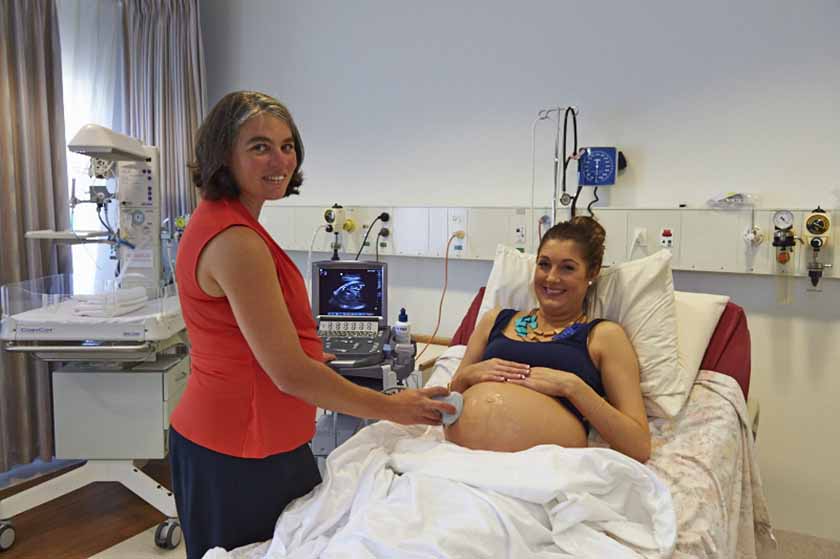MYTH: Morning sickness occurs in the morning.
TRUTH: Unfortunately not! Morning sickness can occur at any time of the day.
It is commonly thought to be your body’s reaction to an increase in pregnancy hormones. It will normally end in your second trimester; however some women will experience it throughout their pregnancy.
Midwife Manager Julie Rakic shares her tips for coping with morning sickness:
- If you can’t keep anything else down, dry crackers are good
- Have small meals more frequently
- Avoid smells that set you off.
MYTH: When you are pregnant you eat for two.
TRUTH: While your diet does change while you are pregnant this doesn’t necessarily mean upping your portions.
- Eating smaller meals more often can help you keep your energy levels up.
- Increase your fruit and veg intake
- Make sure your carbohydrates are Low GI such as multigrain, wholemeal bread, to prevent energy crashes.
“It is also important to keep hydrated, especially if you have morning sickness,” said Siobhan Eccles, Nurse Midwife Manager at St John of God Subiaco Hospital. “In the Australian summers, it is easy to get dehydrated, especially if you’re unwell.
MYTH: Gestational diabetes is caused by eating too much sugar while pregnant
TRUTH: Gestational diabetes is a condition that affects approximately 7% of women during their pregnancy. It is NOT caused by eating too much sugar.
The pancreas produces insulin which allows the glucose from the food we eat to pass from our blood stream into our cells for energy. Pregnancy hormones can get in the way of insulin working properly, meaning that glucose can build up in the blood stream.
Gestational diabetes can often be managed with a healthy diet and exercise. This is because exercise can increase insulin sensitivity. However in some cases it may be necessary to take insulin injections.
Gestational diabetes almost always goes away once your baby has been born, however it is very important to remember that 50% of all women who have had gestational diabetes, will go on to develop type 2 diabetes within their lifetime.








